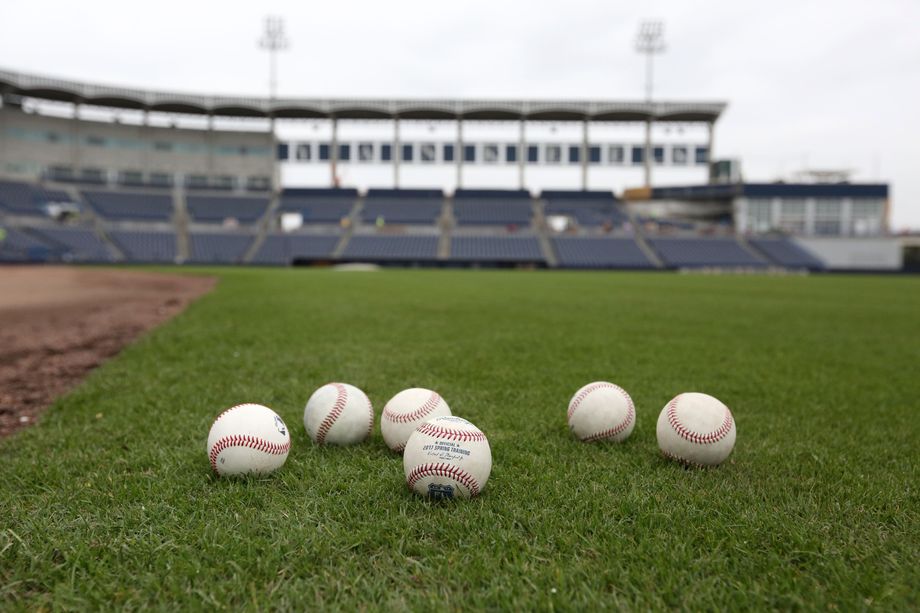This week marked the beginning of the season for the 22 combined teams of the Northwest and New York-Penn Leagues, both Single A Short Season (SS) levels.
For Jays fans, tonight is the home opener for their SS affiliate, the Vancouver Canadians, the seventh season in partnership with each other.
As I’ve previously mentioned, Opening Night is the culmination of front office’s hard work setting up sponsorships, gate giveaways, ticket promotions, media campaigns, hiring part-time staff, and all other miscellaneous challenges that inevitably arise.
Opening Night is the first time in a year fans get to be back in their second home, see their summer family, and cheer on their beloved team. The tremendous energy and atmosphere is topped only by July 4th and playoff games.
It is a great day for fans, players, and the community.
As a GM, however, Opening Night is probably the scariest game of the year for a few prominent reasons, and most Execs will agree that they dislike it.
Lack of Staff Training
We used to be scared of how a fans experience could be–and most often is–determined by an interaction with a part time seasonal staff member making minimum wage. Teams work countless hours and spend countless dollars to promote their family friendly atmosphere and to develop fans.
Unlike MLB teams, or even movie theaters, it is hard to keep seasonal staff from year to year because there just isn’t that much work. This lack of continuity means there will always be new staff to educate on how to use the hot dog steamer, the ticket system, the groundscrew equipment, and what the protocol is if something goes awry.
The years of knowledge and experience that others gain at a consistent job doesn’t exist in this case, which makes training hard and handling challenging situations even harder.
One opening night we ran out of CO2 to pump out beer (I know, right). Our concessionaire thought he knew it all, and didn’t check all the small details. Thankfully, we’d hired experienced bartenders, and once the beer began pouring slowly, they, and eager interns with liquor serving licenses, immediately began pouring cans of beer in cups so the lineups moved quickly. The bartenders’ previous experience was invaluable to us and ensured that fans barely knew there was any issue at all.
Lack of Stadium Usage
Florida State and Arizona League teams’ stadiums are operational during spring training so there is rarely a need for seasonal training for new staff. Those stadiums have around 150 openings, so gameday staff can feasibly work full time.
As well, as a result of their weather, they can even host a few High School tournaments or have a High School team play out of their stadium full time. While hosting Little League and High School tournaments is what a community stadium should be doing regardless, secretly, teams love the practice for their staff.
This allows their grounds crew a few weeks to prepare the field and learn so everything is working perfectly for the season. With all due respect to those Grapefruit and Cactus League teams, bad experiences at their stadiums during Spring Training might not have the same negative effect on ticket sales and PR as when an MiLB team makes that error. This is because most of the Spring Training fans are tourists, there to see the MLB teams and players, enjoy Spring Break with the family, and almost expect and appreciate the ‘small and cozy’ feel of that stadium.
One team in one of my leagues had their toilets overflow on Opening Night because their pipes hadn’t had much recent usage and their plumbing company underestimated traffic in their appraisal.
I’ll save you the pun, but it wasn’t the right first experience they were seeking.
Zero To Sixty
For most teams, there isn’t enough practice before Opening Night to make sure that ushers perfectly know the seating bowl, that ticket takers have the answers to every potential question, and that concession staff can manage lineups. High School games only draw a few hundred fans, just enough to ensure that some of the concession equipment works, that the bathroom staff can keep it clean with slight traffic, and that parking staff perfect their communication with a small amount of cars.
Even if returning gameday staff members remember most of the elements, it can be rusty. There aren’t many opportunities to simulate 10,000 fans entering the stadium for the first time, looking to park, pick up their tickets, buy a new hat, taste their first hot dog and beer, and see the green grass. All at once.
Most teams try to mitigate that pressure by having ticket pickup parties, Fan-Fests, and other pre-season events for fans to pick up tickets and sample new food items, and for first time suite holders to tour the stadium.
Essentially, it gives fans the opportunity to do all the things they would do during a game to alleviate some of the Opening Night pressure. Again, however, there is only so much to prepare for the pressure of all those fans at the same time.
In my last year as Ticket Director, right before we began selling out every game, our Box Office had 4,500 tickets at Will Call for opening night. Not to date myself, but this was before fans could print tickets at home. There was an endless lineup and fans were livid about waiting in line even though they’d bought tickets before the game. Many angry fans showed up at customer service to yell my ear off. Needless to say, we implemented new systems for future sellouts.
This is just a reminder that for every cold beer served, memory made, and goose bump created on Opening Night, there’s a nervous executive team behind the curtain with their fingers crossed hoping the night goes as smoothly as practiced.
Lead Photo: Kim Klement-USA TODAY Sports
